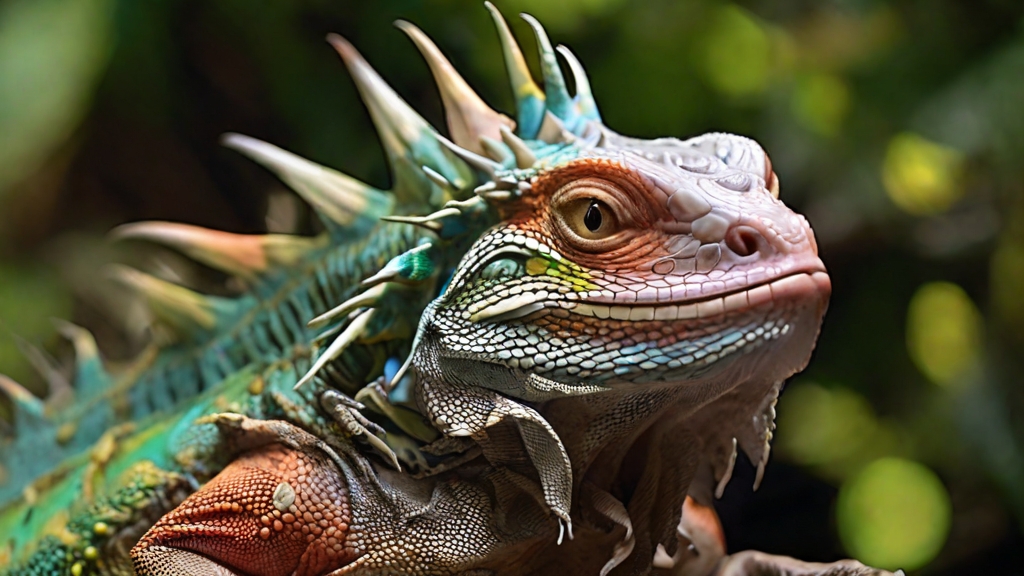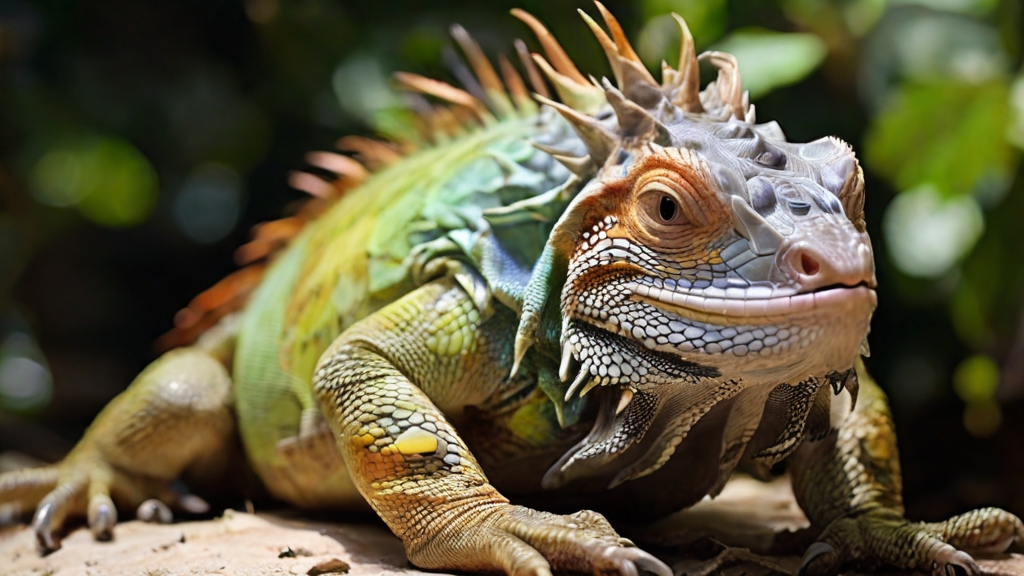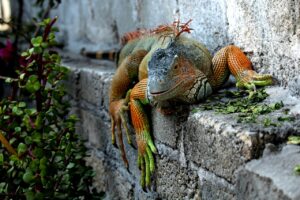Florida is a popular destination for both tourists and iguanas alike, with a subtropical climate that is perfect for these tropical reptiles. However, not all iguana species are native to Florida, and it is important to understand the differences between native and introduced species in order to coexist peacefully with these animals.
What Iguanas Are Native to Florida?
There are two species of iguana that are native to Florida: the green iguana (Iguana iguana) and the spiny-tailed iguana (Ctenosaura similis).
The green iguana is the most common species of iguana found in Florida, and is native to Central and South America. They are known for their bright green coloration and long tail, and can grow up to 6 feet in length. Green iguanas are primarily herbivorous, feeding on leaves, flowers, and fruit, and are often found near water sources. They are also good swimmers and can be found in aquatic environments such as rivers and streams.
The spiny-tailed iguana, also known as the black spiny-tailed iguana or the black iguana, is native to Central America and parts of South America. They are smaller in size compared to green iguanas, reaching a maximum length of about 3 feet. Spiny-tailed iguanas are omnivorous, feeding on a variety of plant and animal matter, and are known for their distinctive row of spines along their tail. They are generally found in dry, rocky areas and are adapted to climbing and basking in the sun.
Other Iguanas Found in Florida
In addition to the native green and spiny-tailed iguanas, there are several other iguana species that have been introduced to Florida. These include the Cuban rock iguana (Cyclura nubila) and
the black spiny-tailed iguana (Ctenosaura similis).
The Cuban rock iguana is native to Cuba and the surrounding islands, and has been introduced to several areas in Florida, including Key West and the Dry Tortugas. They are a protected species and it is illegal to keep them as pets in Florida. Cuban rock iguanas are larger than green iguanas, reaching up to 4 feet in length, and are characterized by their distinctive black and white markings. They are generally found in rocky areas and are skilled climbers.
The black spiny-tailed iguana is native to Central America and parts of South America, and has also been introduced to several areas in Florida. They are similar in appearance to the native spiny-tailed iguana, but are generally larger and have more vibrant coloration. Black spiny-tailed iguanas are also illegal to keep as pets in Florida.
Coexisting with Iguanas in Florida
If you encounter an iguana in Florida, it is important to remember that they are wild animals and should be treated with respect. Here are some tips for coexisting peacefully with iguanas in Florida:
- Do not feed iguanas: Feeding iguanas can lead to dependency on humans and can also lead to health problems due to a lack of proper nutrition.
- Keep your distance: It is important to give iguanas space and avoid approaching or harassing them.
- Secure your property: If you are concerned about iguanas entering your property, you can take steps to secure your perimeter such as installing fencing or netting.
- Respect their habitat: If you come across an iguana in the wild, it is important to observe them from a distance and avoid disturbing their habitat.
Conclusion: What Iguanas Are Native to Florida?
Florida is home to two species of native iguana: the green iguana and the spiny-tailed iguana. In addition, there are several introduced iguana species that can also be found in the state, including the Cuban rock iguana and the black spiny-tailed iguana. By understanding the differences between native and introduced species and taking steps to coexist peacefully with iguanas, you can help ensure that these fascinating reptiles continue to thrive in the Sunshine State. If you have any questions or comments about iguanas in Florida, feel free to leave them in the comment section below.




